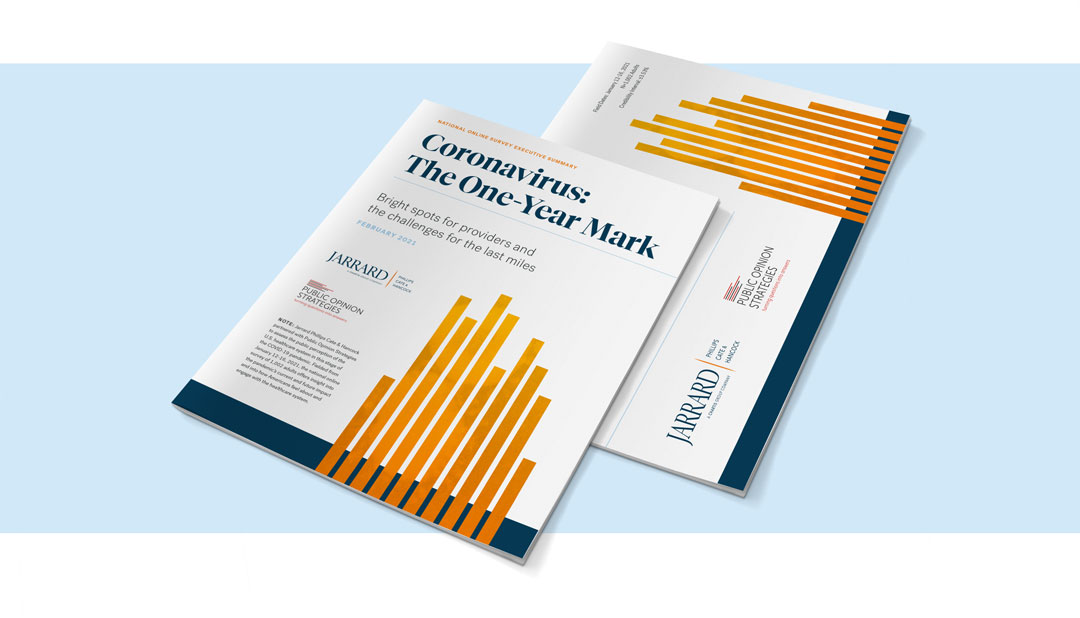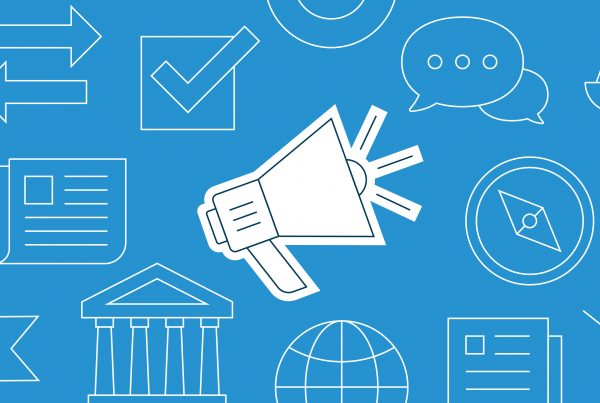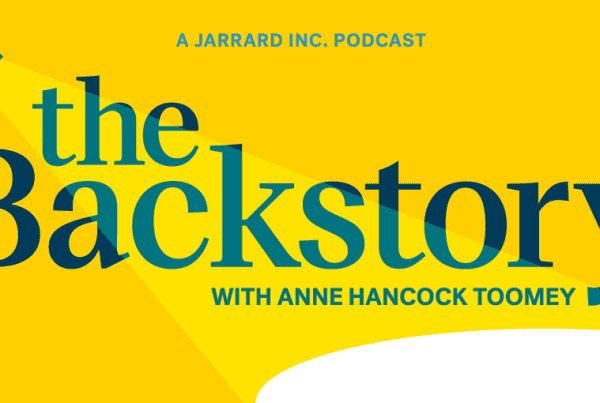National survey reveals 15 percent of healthcare workers unlikely to remain in the field following pandemic.
BRENTWOOD, Tenn., and Chicago – The healthcare workforce is in desperate need of attention, according to a new consumer survey released today.
The study, third in a series from healthcare strategic communications firm Jarrard Phillips Cate & Hancock and Public Opinion Strategies, revealed that as many as one in seven healthcare workers could exit the field following the pandemic, potentially leaving a significant staffing shortage at provider organizations. Age is a factor, with 23 percent of younger healthcare workers (aged 18-34) not likely to remain, compared to only nine percent of those in the 35-64 bracket, according to the January 2021 survey.
“With no people, it’s mission impossible for healthcare,” said David Jarrard, CEO of Jarrard Inc. “An exodus from this essential industry is a real concern, coming on the heels of caregiver burnout that was raging prior to the pandemic.”
“That’s why listening to and engaging with physicians and employees enterprise-wide is imperative for healthcare leaders today so they can make adjustments necessary to support and retain their cherished staff.”
Yet on a positive note, healthcare workers are more willing to be vaccinated than they were last summer: Vaccine hesitancy among healthcare workers and their families has dropped six points since August. Of those who are living in healthcare households and skeptical of COVID-19 vaccines, concern about potential side effects is the biggest barrier to acceptance. That issue can be ameliorated over time as these individuals witness positive outcomes for others who have been vaccinated.
The survey indicated that public trust in and support of healthcare providers remains high. The public wants to hear from doctors, nurses and hospitals on key healthcare issues, including COVID-19 vaccines.
Together, the findings suggest that provider organizations are in a moment where workforce support will be critical to weathering ongoing pandemic-driven challenges – and to helping to educate and guide the public toward vaccine acceptance.
“As we have seen throughout the pandemic, the public trusts healthcare workers and supports hospitals, wanting to hear from these groups on key issues,” Jarrard said. “However, it will be difficult to
use this trust to promote vaccine acceptance and other health initiatives if those same caregivers are skeptical and burned out.”
Other key findings revealed by the online survey of 1,002 American adults (credibility interval 3.53 percent), fielded January 12-16, 2021 when vaccination rollouts were well underway, include:
- Fear of the virus continues its dominance of American life in 2021: More than one-third of Americans view the pandemic as the most important issue facing the country, and 76 percent remain concerned they or a loved one will contract it. However, Americans feel safer in medical settings than many other public spaces.
- The public remains skeptical of vaccines: Barely half say they are highly likely to get vaccinated, with resistance strongest in key groups including women and minorities. Fear of side effects is the most often cited concern, particularly among those communities, underscoring the need for providers to be active vaccine educators.
- Providers are trusted and have a mandate to use their voice: Doctors, nurses and hospitals remain the most trusted professionals and institutions in the country and have generally escaped blame for problems in the vaccine rollout. In this moment, people want to hear from providers above all others on healthcare issues, especially about the safety and effectiveness of vaccines.
- Healthcare workers are at their breaking point: Forty percent of healthcare workers are unlikely or only somewhat likely to remain in the field after living through the pandemic. Since August, concern about side effects has jumped 25 points among healthcare workers skeptical of the vaccine. In contrast, the vast majority of consumers think hospitals should require their staffs to be vaccinated.
- Providers have bright spots to leverage: Telehealth use has grown and is well-liked, with 53 percent of respondents saying they had used telehealth (up from 29 percent last April) and three-quarters of those saying they will continue to use it in the future. Meanwhile, virtually everyone feels that price transparency is important and valuable in their pursuit of care. They continue to think hospitals should receive more funding from the federal government. But most important: Respondents feel safer in medical settings and are more likely to return to care sooner than they were in August.
“The past 12 months have put a spotlight on the work of our healthcare workers, along with hospitals, health systems and so many other provider organizations,” Jarrard said.
“Though challenges remain, now is a critical moment for these organizations to step back and look at ways to maintain the trust they have earned, create or consolidate programs to improve access and outcomes, and fulfill their mission as we move out of the pandemic. That means continuing to educate about vaccines, but also looking to longer-term partnerships and programs like telehealth, price transparency and even hospital-at-home.”
About Jarrard Inc.
With offices in Nashville, Tenn. and Chicago, Jarrard Phillips Cate & Hancock, Inc. is a U.S. top 10 strategic communications consulting firm for the nation’s leading healthcare providers experiencing significant change, challenge or opportunity. Founded in 2006, the firm has worked with more than 500 clients in 45 states. Jarrard Inc. specializes in M&A, change management, issue navigation and strategic positioning, and has recently worked with more than 60 healthcare organizations on communications initiatives revolving around the coronavirus pandemic. Jarrard Inc. is a division of The Chartis Group.
For more information, visit jarrardinc.com or follow us @JarrardInc.



